Graceland Cemetery: A Grand Finale
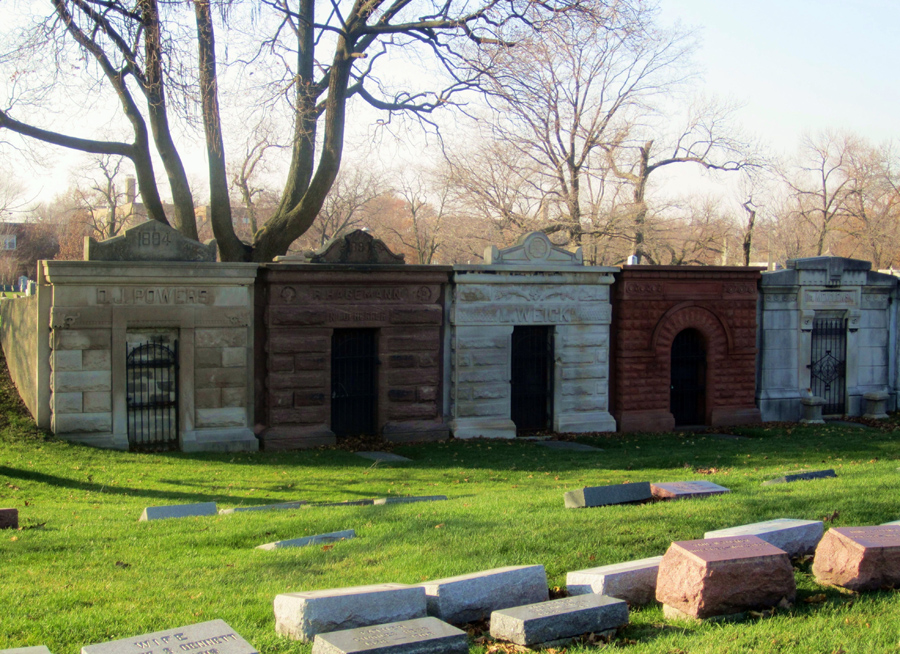
Many phenomenal architects have left their mark in the world, leaving amazing structures and spaces that fascinate us. The designing, planning, construction, and masonry leaves us in awe, but what leaves me in awe more is the intimate view of that final resting place and space.
My first article in a new series of final resting places is about Graceland Cemetery located 4001 N. Clark Street, which opened in 1860.
My six-hour walk through Graceland was not enough to see this truly peaceful and beautiful space. I walked for hours and was amazed by what I saw. It seems as if these monuments and tombs were in competition, still trying to outdo each other even in death.
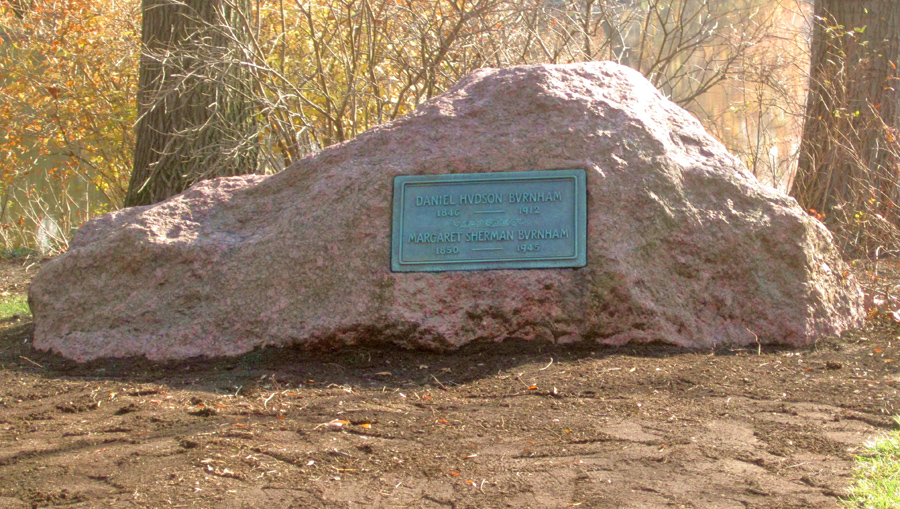
My search started with the gravesite of Daniel Burnham. I have so much respect for this man and his thoughts to make Chicago nothing but spectacular, as noted with his quote, “Make no little plans.”
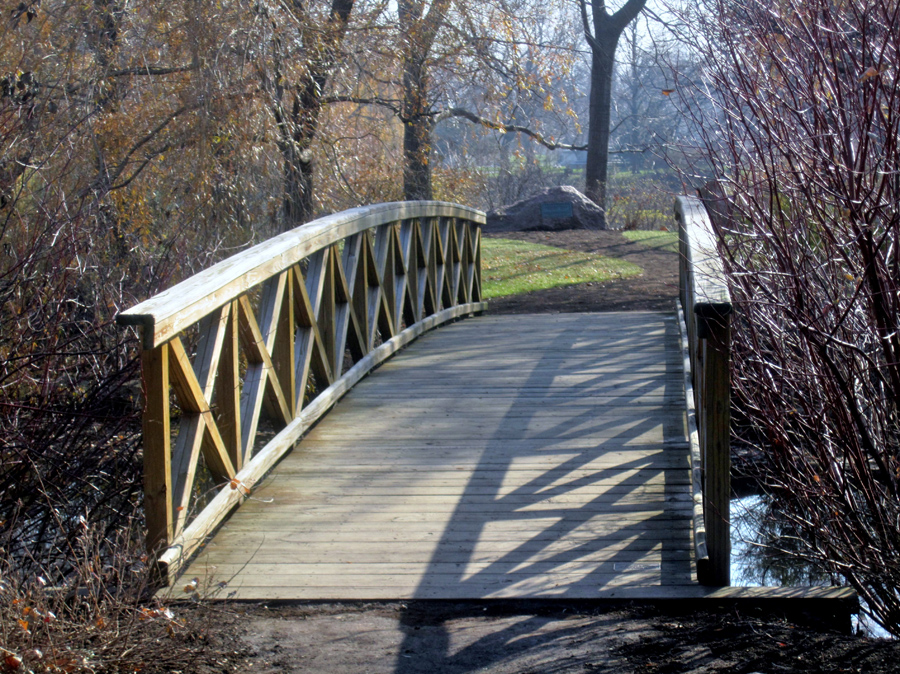
Walking across the little bridge reminded me of Wooded Island in Jackson Park, home of The World’s Columbian Exposition (1893).
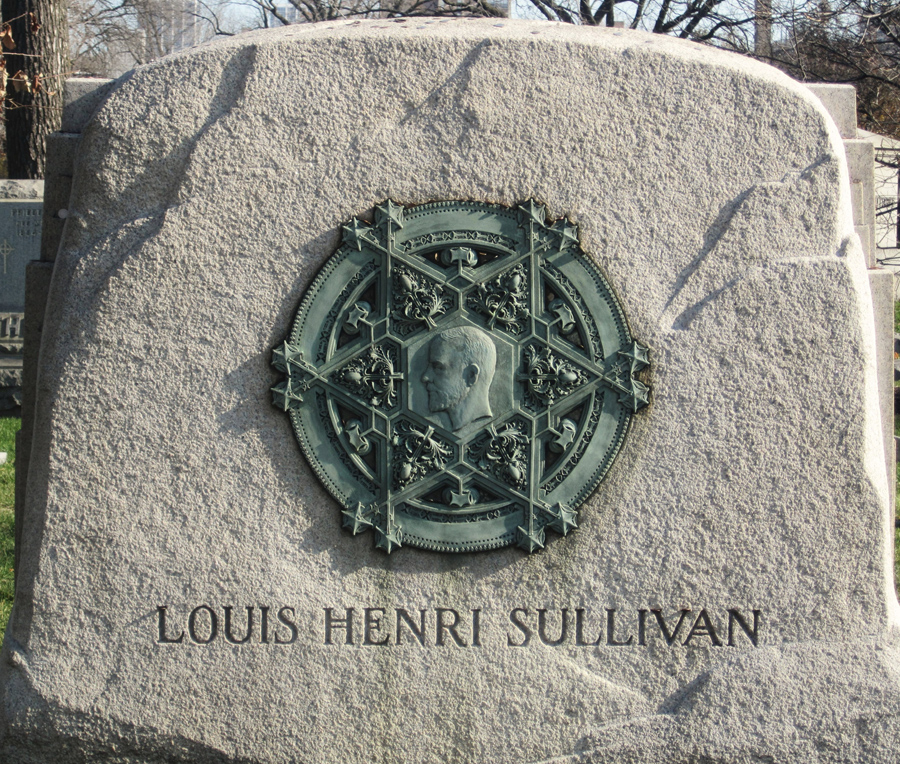
After this, I began my search for Louis Sullivan who designed some of the most amazing monuments here at Graceland.
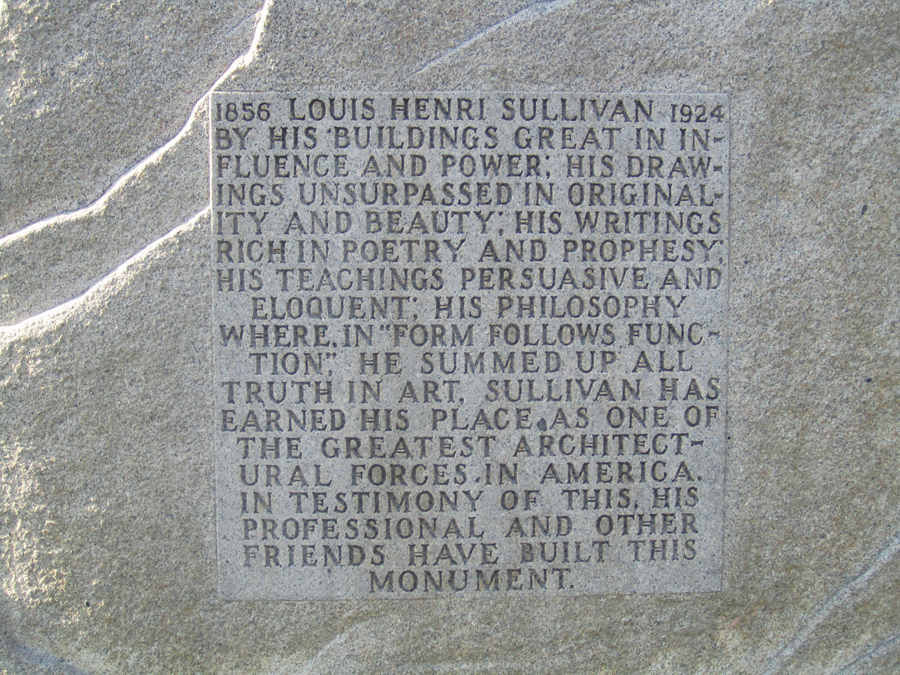
Despite designing many, he was initially buried without a proper monument. As the inscription above shows, his friends later erected one in his honor. His marker is one of beautiful simplicity.
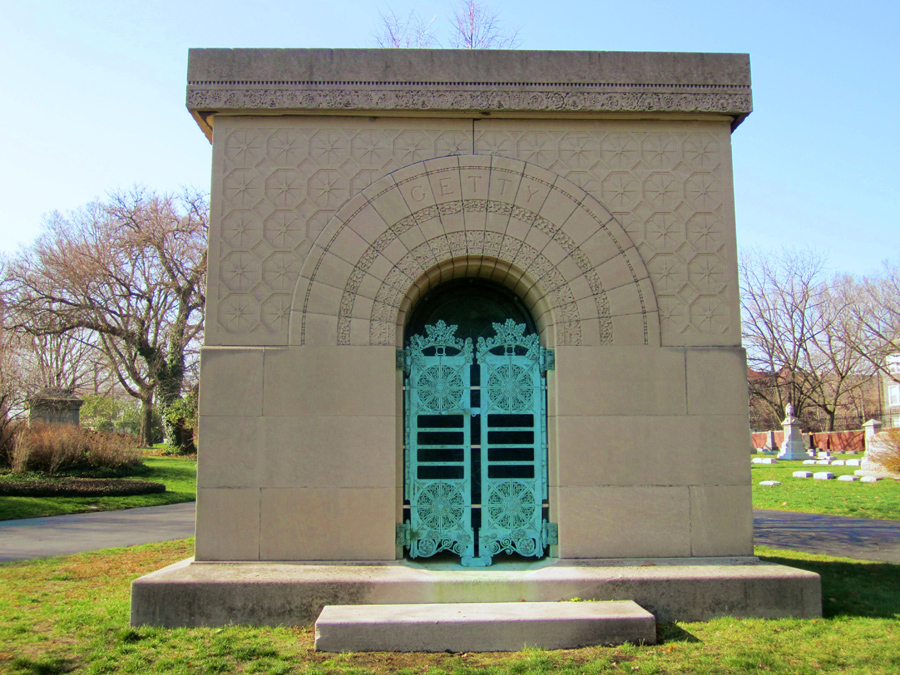
The Getty Tomb is one of Sullivan’s beautifully detailed works.
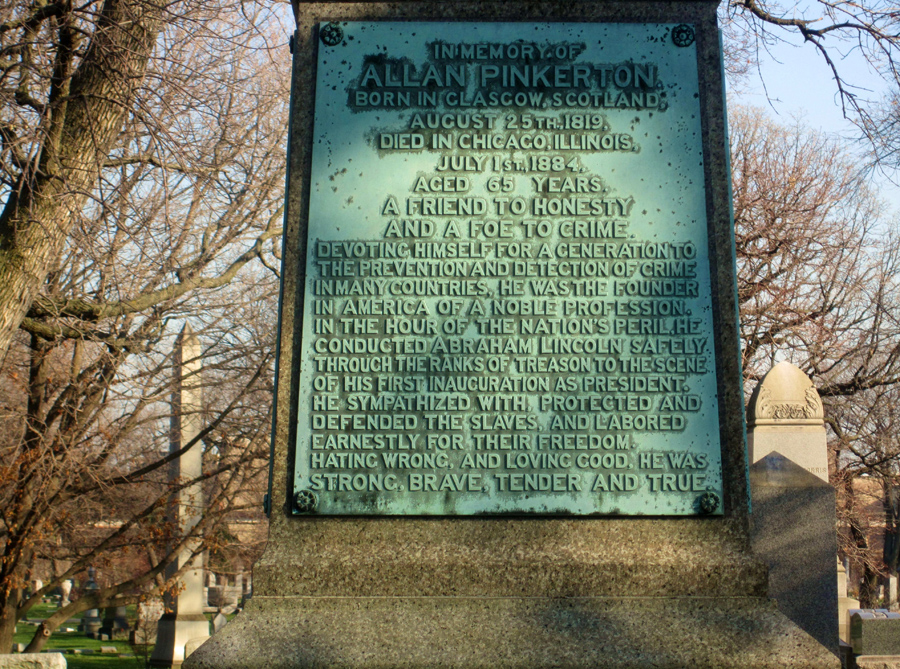
Allan Pinkerton (tomb above) was America’s first detective.
What I noticed about Pinkerton’s gravesite is that everyone who worked for Pinkerton were buried all together. In fact, there are many servants and workers buried near the people they worked for. For those who came to Chicago alone to make a living with no family, the people they worked for become their family. In some cases, they were buried in the family plot.
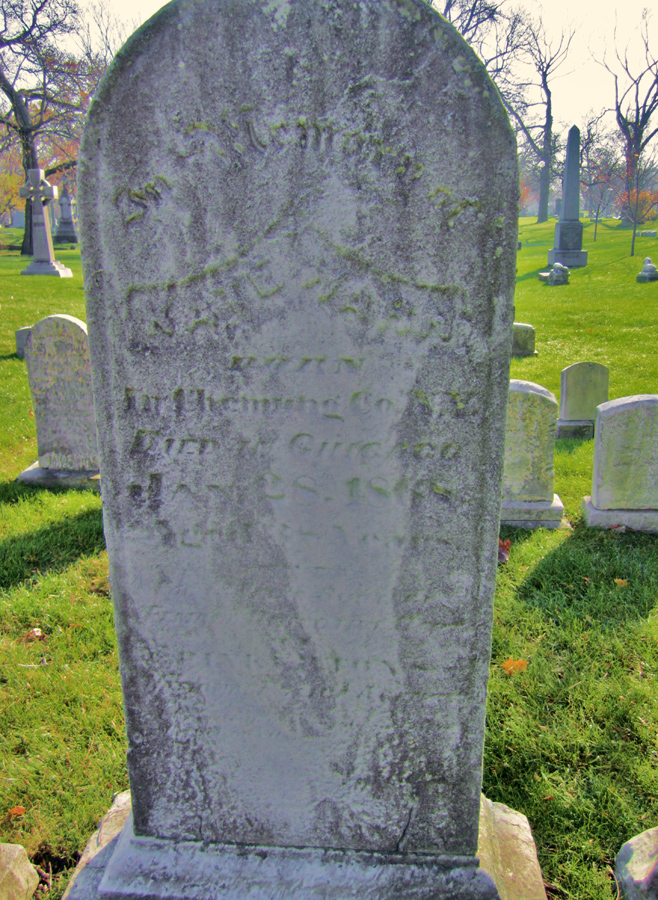
Kate Warne (tomb above) was America’s first female detective.
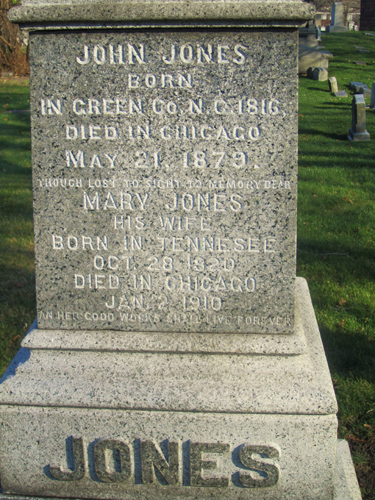
The first black man to become a politician in Cook County is John Jones, who is also buried at Graceland.
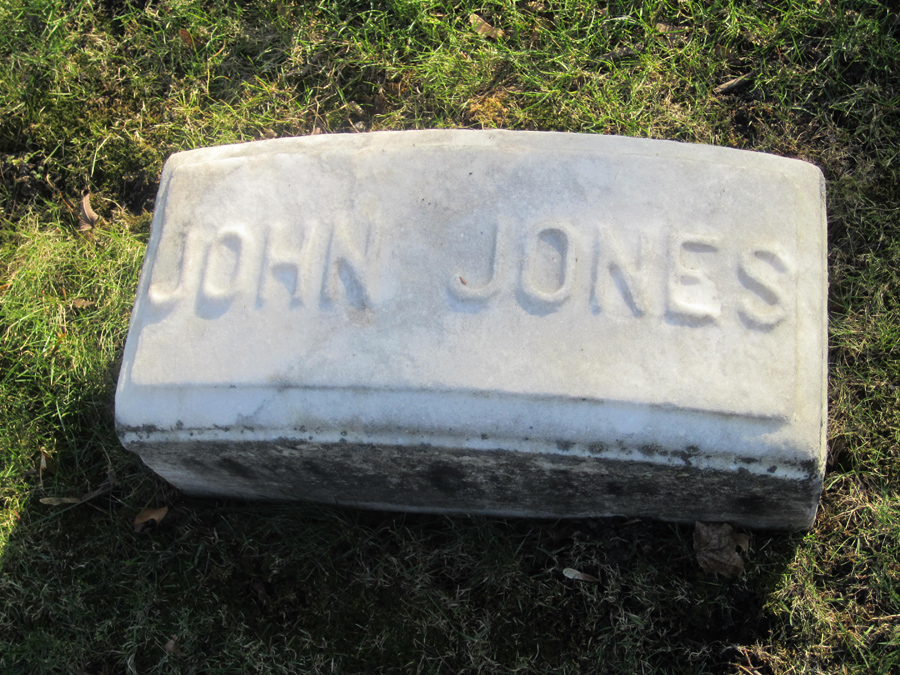
John came to Chicago a free man and tried to start a tailoring business, but it was a struggle. He was forced to provide documents proving he was a free negro.
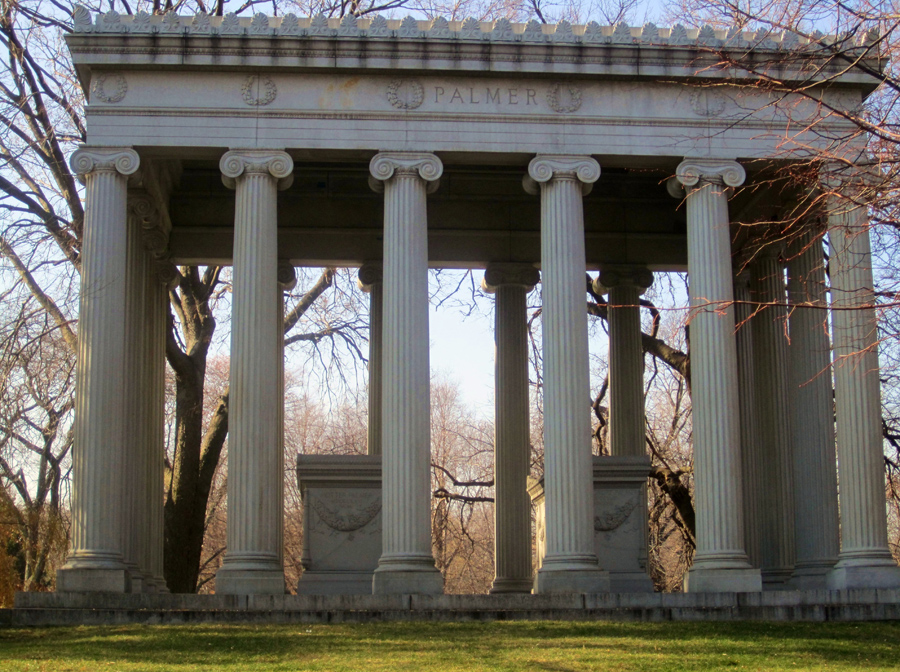
Then there is Potter and Bertha Palmer’s palatial monument that sits off a little creek.
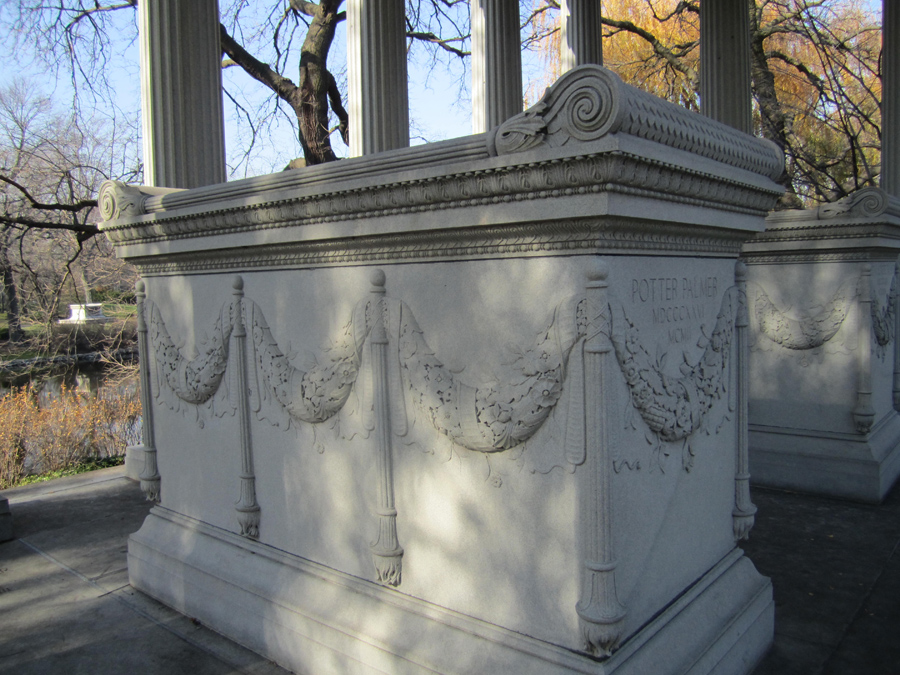
The exquisite detailing of their monument is a jaw dropping example of grandeur for one’s final resting place.
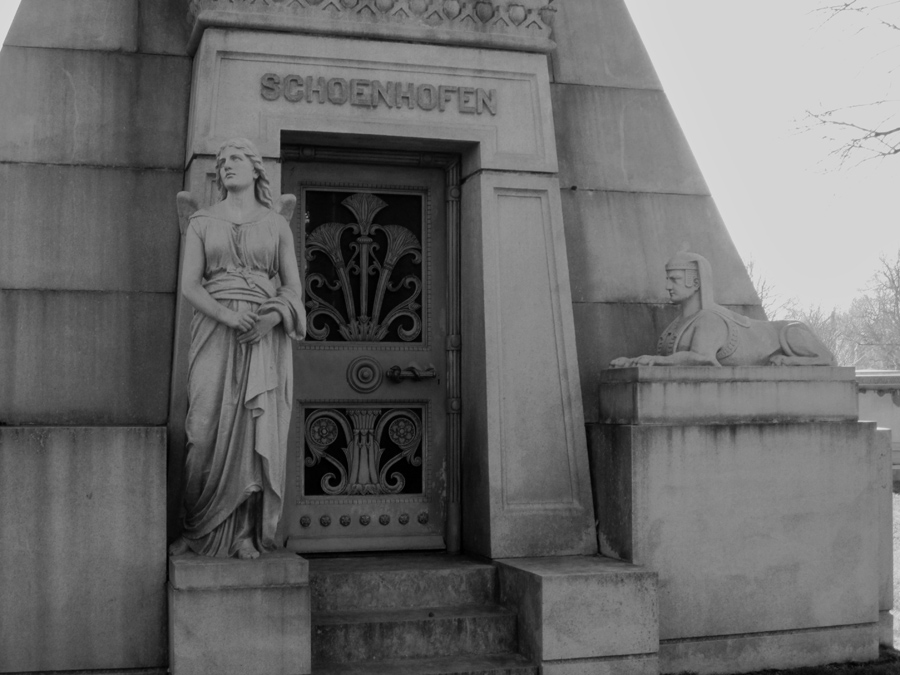
Peter Schoenhofen’s tomb resembles an Egyptian Pyramid. Those in the early early 19th century had a fascination with Africa. It is was prevalent in their lives, homes and architecture.
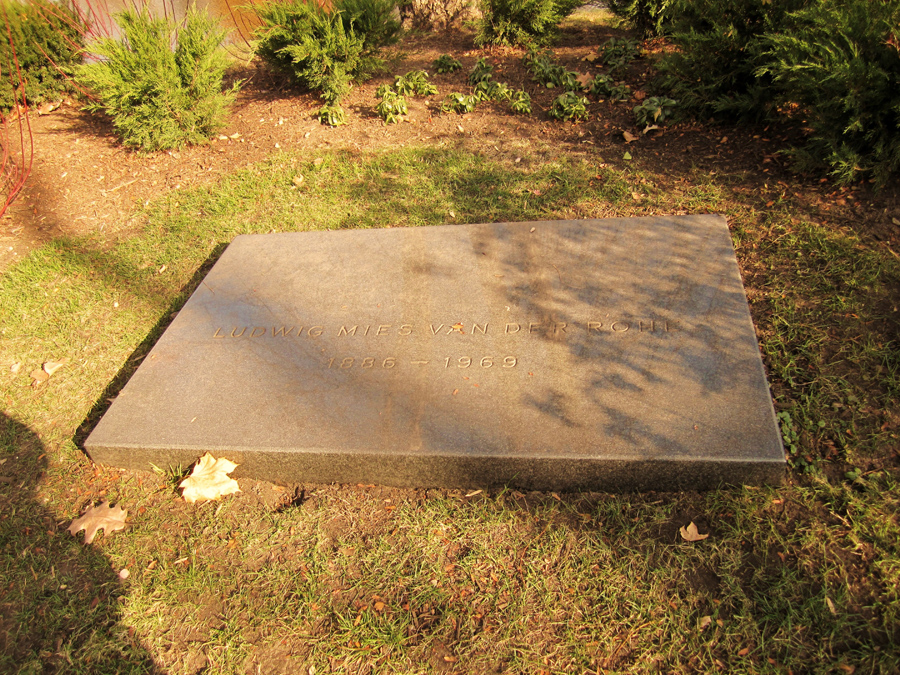
The Mies Van der Rohe monument was designed by his grandson, architect Dirk Lohan.
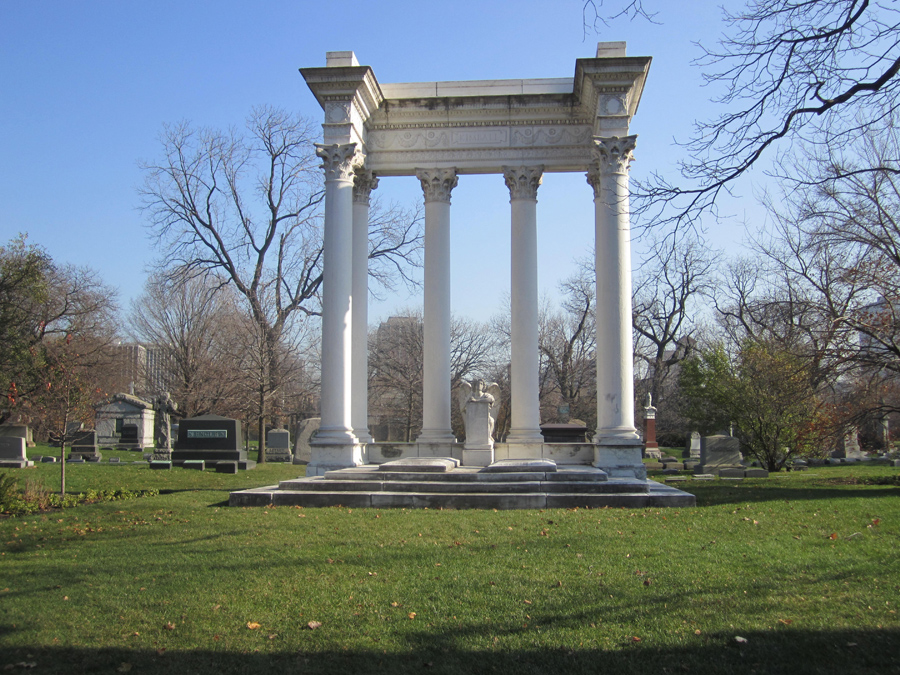
William Kimball (monument above) was a piano magnate. This monument was designed by McKim, Mead, and White and erected in 1907.
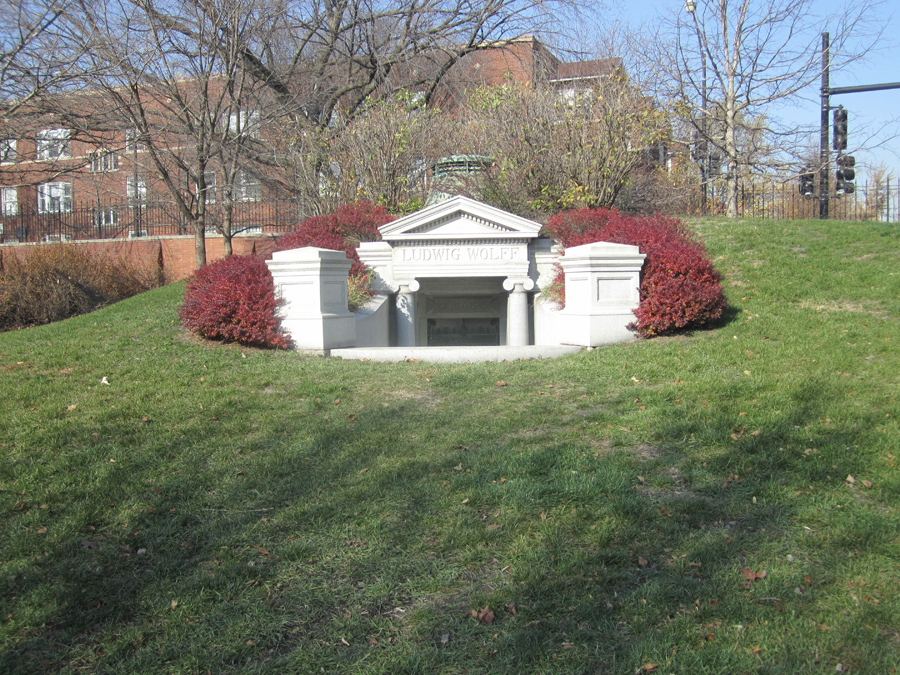
Ludwig Wolff was a coppersmith and his tomb is said to be haunted.
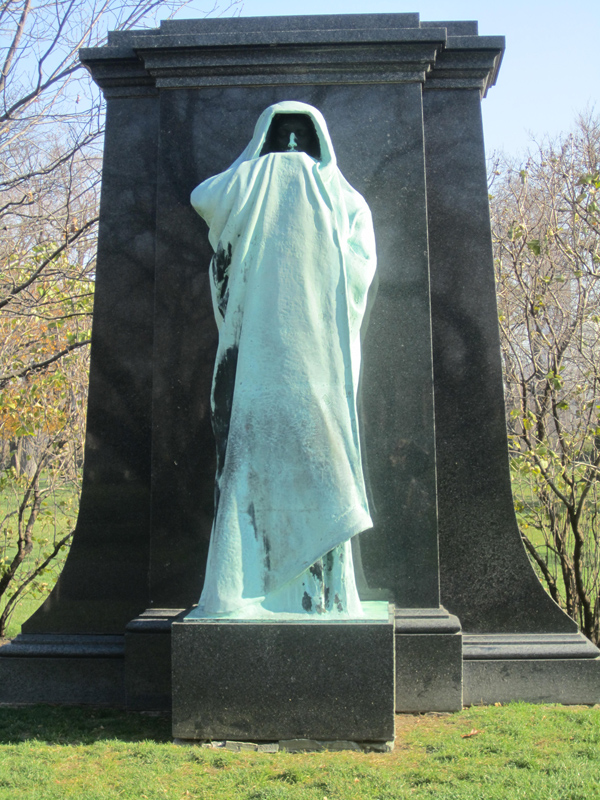
The monument above is for Dexter Graves, a businessman and hotel owner. You can read more about his life and final resting place at designslinger.
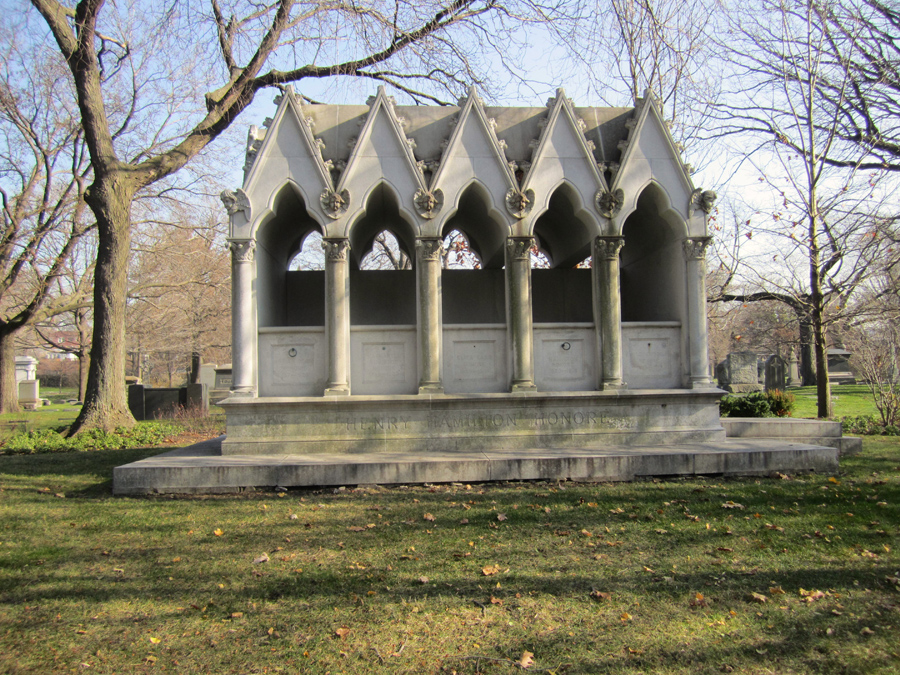
Henry Hamilton Honore (monument above) was a successful businessman who was responsible for creating a large business district along Dearborn Street. Honore Street is named after him. Henry Hamilton Honore’s daughter was Bertha Palmer.
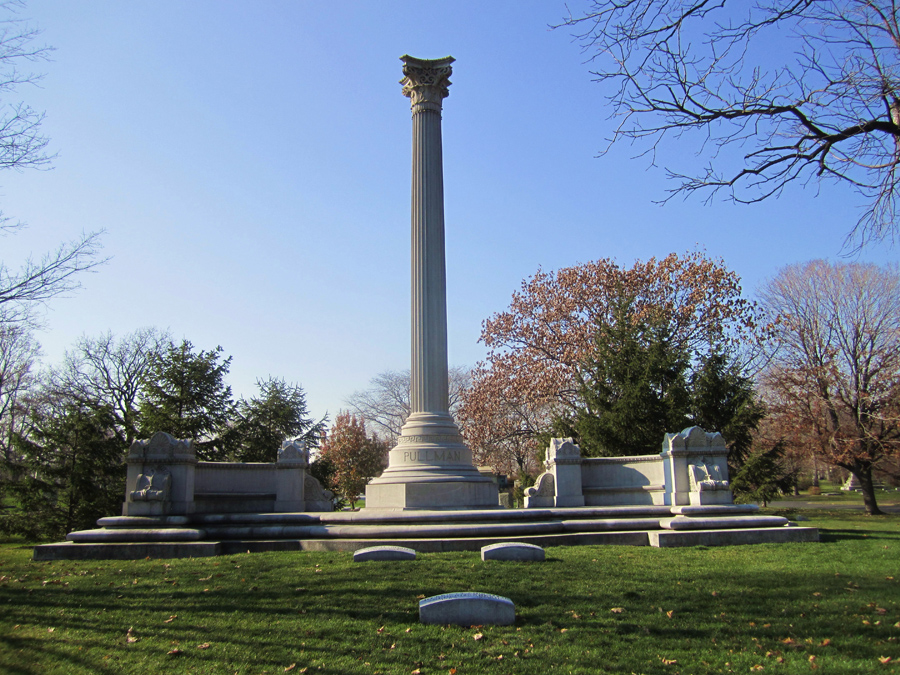
I came upon George Pullman’s monument and all I could think about was Pullman Town, the Pullman Porters, and the angry railroad workers. He was buried at night in total secrecy because the family was afraid his body would be dug up and desecrated by people who hated him. His coffin is covered with tar paper and asphalt, sunk in a concrete block and covered with railroad ties and recovered with more concrete.
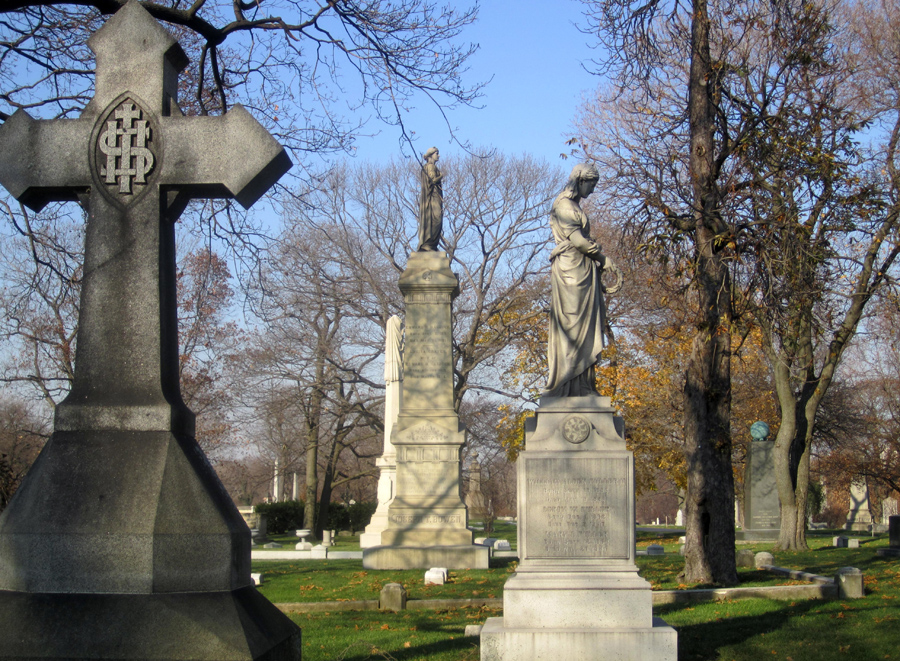
These are only a few of the many magnificent monuments at Graceland, a 19th Century Victorian Cemetery.
Related articles:
Further reading:
- Graceland Cemetery (official site)
- Dexter Graves monument (designslinger)


This was an awesome article, very interesting details and amazing photos. Very well done.
Thanx! I really appreciate the feedback.
I took a class years ago at College of DuPage called Chicago Experiencing. When we were told that one of the sites we would visit was Graceland Cemetery we had second thoughts. Well it turned out to be an amazing trip. Who could imagine the architect of graves being so detailed and competitive. I had never seen anything like it. It is worth the trip to see the thought process of those even in death.
Awesome pictures and descriptions!
Thank you Yanni! The Grand Finale…
One really has to experience this place to get the full effect of this architectural wonderland.
I know you truly know.
:)
Andi Marie, great write up and photographs. You just need to get to that old church with you friend now! :)
Thanx for checking it out!
Amazing! The pictures are so colorful and clear and the article write-ups are very informative. Great job!!!
Thanx J! Stay tune for part 2.
I was just there and saw many of the monuments you speak of but did not know all the info you gave. Is it written somewhere? Possibly for a self tour.
Check out a book called Graveyards of Chicago by Matt Hucke & Ursula Bielski. This was my self guide through Graceland. It was fantastic!
Very nice, enjoyable and interesting article. You really research it well.
Thanx Abena!
[…] Pilgrim also hosted the funeral of legendary heavyweight boxing champion Jack Johnson. After suffering in a car crash and later dying in a hospital in Raleigh, he was remembered at Pilgrim Baptist. He is now buried at Graceland Cemetery. […]
[…] Arnold died in 1912 at the home. He is buried at Graceland Cemetery. […]